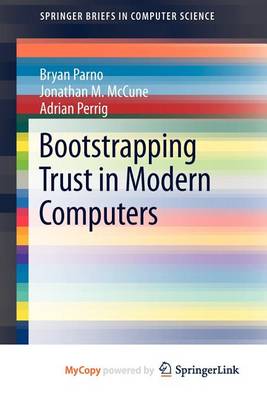Trusting a computer for a security-sensitive task (such as checking email or banking online) requires the user to know something about the computer's state. We examine research on securely capturing a computer's state, and consider the utility of this information both for improving security on the local computer (e.g., to convince the user that her computer is not infected with malware) and for communicating a remote computer's state (e.g., to enable the user to check that a web server will adequately protect her data). Although the recent "Trusted Computing" initiative has drawn both positive and negative attention to this area, we consider the older and broader topic of bootstrapping trust in a computer. We cover issues ranging from the wide collection of secure hardware that can serve as a foundation for trust, to the usability issues that arise when trying to convey computer state information to humans. This approach unifies disparate research efforts and highlights opportunities for additional work that can guide real-world improvements in computer security.
- ISBN10 146141461X
- ISBN13 9781461414612
- Publish Date 29 August 2011 (first published 1 January 2011)
- Publish Status Withdrawn
- Out of Print 18 October 2014
- Publish Country US
- Imprint Springer
- Format Paperback (US Trade)
- Pages 120
- Language English
